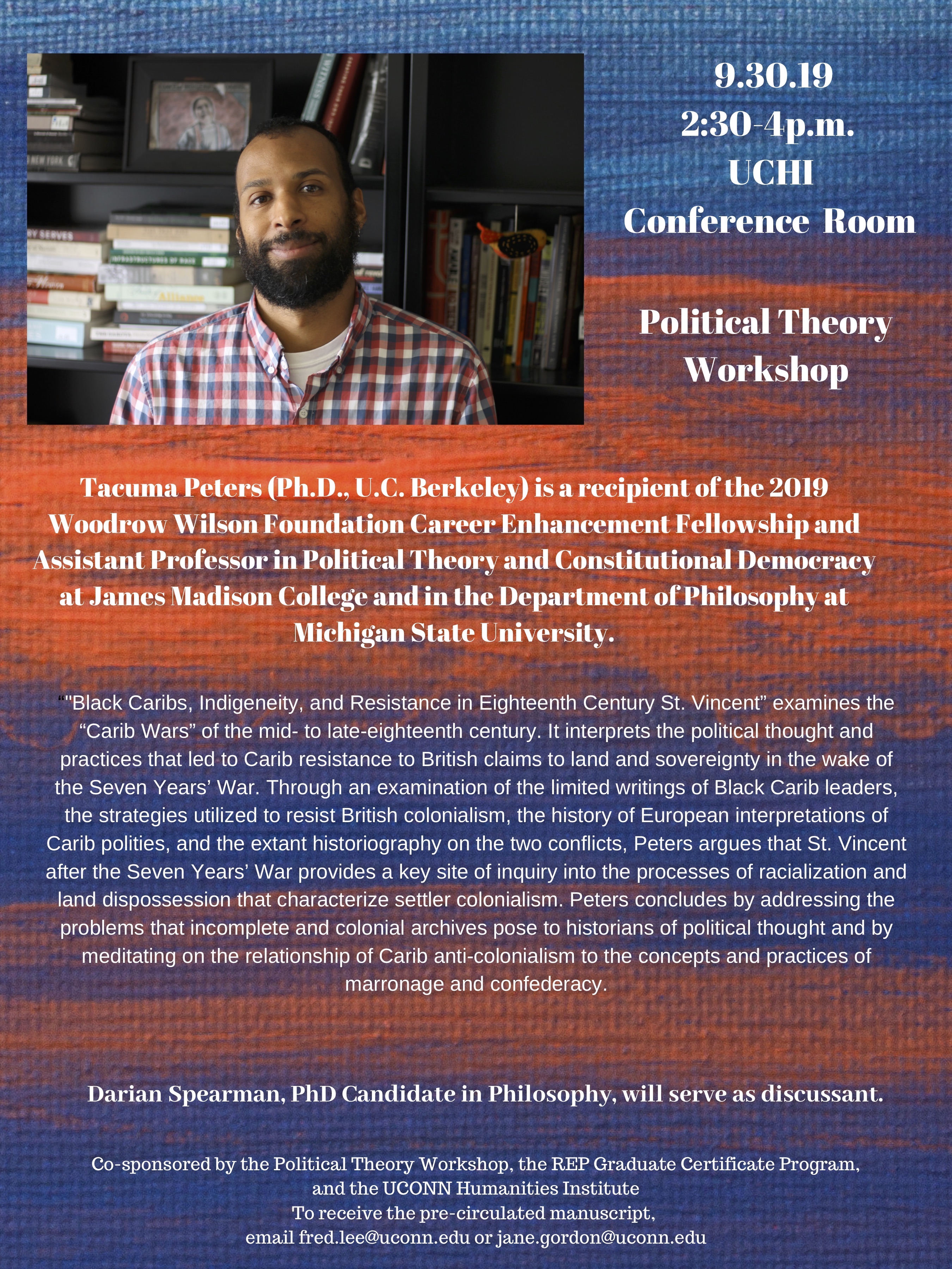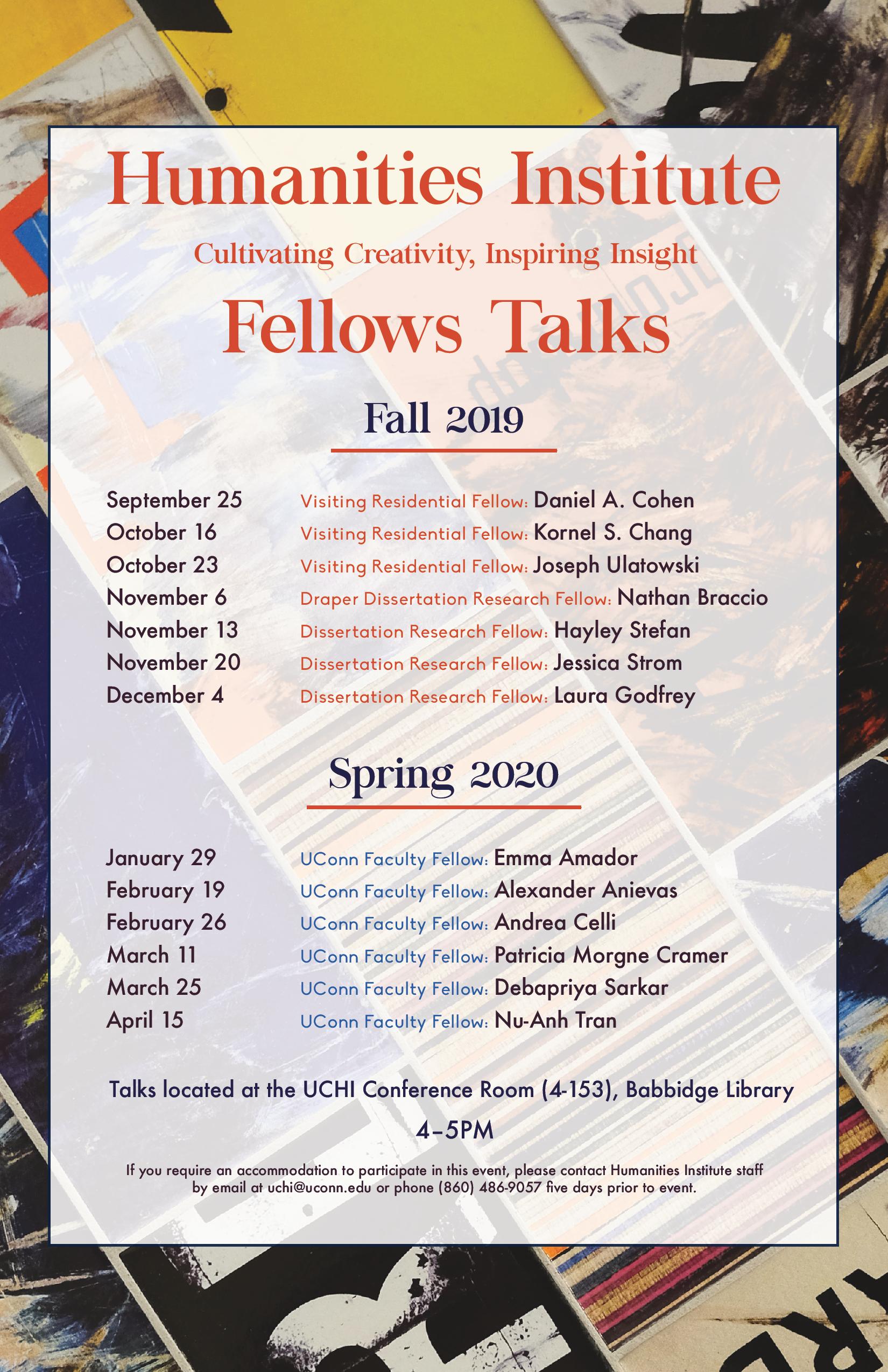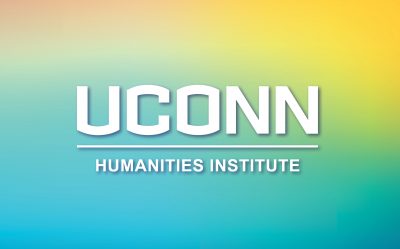When: 9:00AM – 12:00PM
What: Initiative on Campus Dialogues “Office Hours”
Where: Humanities Institute Seminar Room, Babbidge Library, 4th Floor
Organizers: Initiative on Campus Dialogues
Interested to offer a dialogue on confronting racism in your classroom, but wish to know a little more about process, possibilities and potential pitfalls? Drop in on the Humanities Institute’s Initiative on Campus Dialogues (ICD) “office hours” where participants in ICD will be available to walk through different dialogic approaches, share their experiences discussing difficult questions, workshop strategies for running a structured conversation in the classroom, and generally do what they might to answer your questions. Those confirmed for the day include the following:
- Hilary Bogert-Winkler (PhD Candidate, History; ICD)
- Sian Charles-Harris (PhD Candidate, NEAG; ICD Fellow)
- Gina Devivo-Brassaw (Associate Director for Community Outreach Programs, Services, and Initiatives)
- Richard Frieder (ICD Fellow)
- Brendan Kane (History; ICD)
- Cynthia Melendez (PhD Candidate, International Studies-Latino Studies)
- Dana Miranda (PhD Candidate, Philosophy; ICD)
When: 7:00PM – 8:45PM
What: Confronting Racism Together: A Model Dialogue
Where: Dodd Center, Konover Auditorium
Organizers: Brendan Kane, Humanities Institute; Glenn Mitoma, Dodd Center
Description: Join UConn leaders as they take part in a public dialogue exploring their experiences with racism. Dialogue is one of the most powerful tools we have in confronting racism. But actual dialogue – as opposed to debate, deliberation or conversation – rarely occurs. In part that is because it can be challenging: the bravery it takes to speak honestly and unscripted, and the discipline to listen with empathy and be present, can be difficult in a world so crowded with stimulus and distraction. Confronting racism, however, requires such bravery and discipline, such honesty and presence. It also needs people who through their public truth-telling can inspire others to truly dialogue over racism. Please join us as members of our community take part in this important conversation, facilitated by Valeriano Ramos of Everyday Democracy. Participants are drawn from across the University:
- Sulin Ba (Associate Dean, School of Business)
- Kazem Kazerounian (Dean, School of Engineering)
- Ian McGregor (PhD Candidate; Curriculum and Instruction, NEAG)
- Joelle Murchison (Chief Diversity Officer)
- Mark Overmyer-Velazquez (Director, UConn Hartford Campus)
- Jeremy Teitelbaum (Provost)
- Irma Valverde (USG President)
https://together.uconn.edu/









